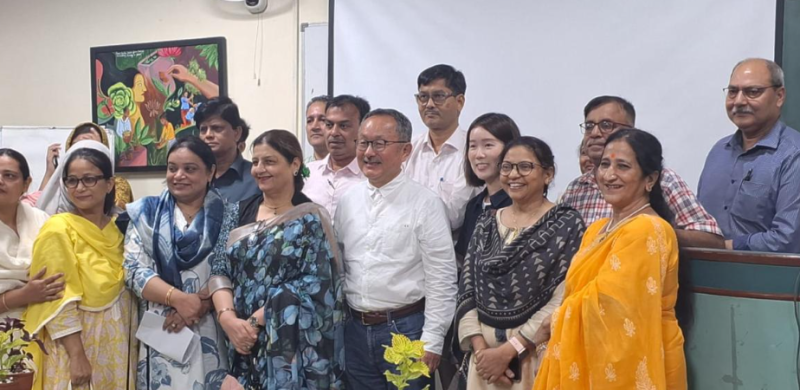The Department of Psychology, Jamia Millia Islamia (JMI) organized a distinguished lecture by eminent & world renowned social psychologist, Prof Shiobu Kitayama from the University of Michigan, USA on ‘Cultural Insights: Exploring beyond East and West’ on 26th September 2024. The Dean, Faculty of Social Sciences, Prof Mohd Muslim Khan was the guest of honour while the lecture was chaired by Prof Zubair Meenai from the Department of Social Work, JMI. Prof Sheema Aleem, the Head of the Department warmly welcomed the speaker and other participants and also thanked Prof Ghazi Shahnawaz for facilitating the interaction. Dr Korsi D Kharshiing, provided a brief introduction to Prof Kitayama’s work.
Prof Kitayama is a renowned Japanese social psychologist and the Robert B. Zajonc Collegiate Professor of Psychology at the University of Michigan. He is also the Social Psychology Area Chair and Director of the Culture & Cognition Program at the University of Michigan. He has a long-term research interest in cultural variation in psychological processes including cognition, emotion, and motivation as well as in the self that is constituted by these processes.
He has had extensive journal editing experiences. He was Editor-in-Chief at Personality and Social Psychology Bulletin (2007–2012). More recently, he has been an associate editor at the second section (Interpersonal Relations and Group Processes) of Journal of Personality and Social Psychology (JPSP). Prof. Kitayama is best known for his work on the social psychology of culture as it relates to the self.
Prof Kitayama in his eloquent presentation argued that Western selves are constructed as independent from others, and people from many East Asian cultures construct interdependent selves, based on the fundamental relatedness of individuals to each other. These differently constructed selves deeply affect how people see the world, how they experience emotions, how they organize their experience, and what they value. The lecture was very well received and led to a number of questions and responses from both the students as well as the faculty. The Q&A session was very lively and participative and helped the students understand the concepts better. The Department hopes to continue to organise many more such scholarly interactions for the benefit of its students and faculty.


